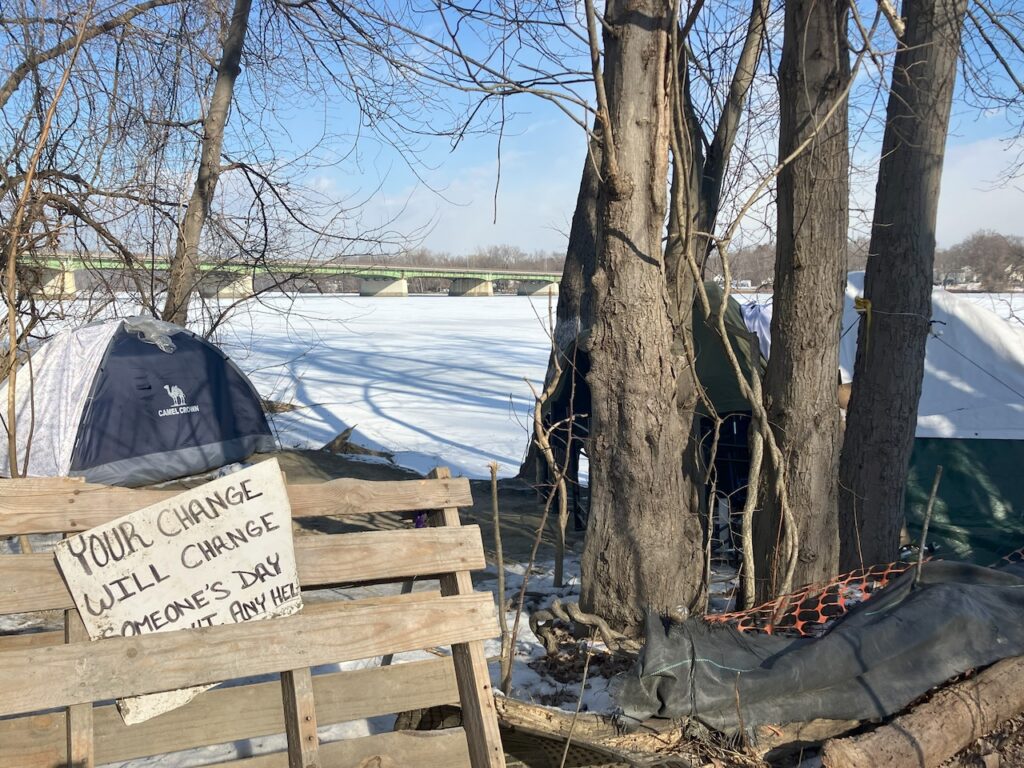SPRINGFIELD — More and more, Center for Human Development homeless outreach workers in the state’s western four counties are seeing an uptick in older homeless adults.
That’s according to Will Dávila, CHD’s vice president of diversion, shelter and housing.
“I can tell you we’ve been increasingly concerned over the last year or two,” he said. “We’ve seen slowly the numbers creeping up.”
Across all age groups, homelessness increased this year in Hampden County compared to 2024. For adults 55 and older, the annual percent increased by 18.4%, several points higher than the bump to the overall population, according to preliminary data from an annual point-in-time count conducted in January. The counts are coordinated at the local level but done across the country, and data is reported to the federal government.
It was the second year in a row in which the older adult group’s numbers increased more than the overall homeless population, said Gerry McCafferty, the city’s housing director and the point person for the Springfield-Hampden County Continuum of Care.

A volunteer speaks with a homeless person in Springfield on a cold night in January. (Sebastian Restrepo / MassLive.com, File)Sebastian Restrepo
On the night the census was taken this past January, 34 people aged 55 and older were sleeping on the streets in the county, while 133 in that age group were sheltered, the preliminary data shows, according to McCafferty.
Rising homelessness among older adults is a nationwide problem.
One study in 2019 predicted the number of homeless people over the age of 65 would almost triple by 2030. Dennis P. Culhane, one of the researchers and a professor in the University of Pennsylvania School of Social Policy and Practice, told NPR earlier this year that the actual increase has been “slightly higher than we predicted.”
Some reasons for the increase: Baby boomers are aging, and there’s a lack of affordable housing.
“I can speculate,” McCafferty said, speaking of the possible reasons for the uptick. “Many older adults lived on fixed incomes. They are on Social Security or other retirement, and rents have gone up tremendously. I think that there likely is a greater challenge of affordability, as rents went up, and incomes did not go up. I think there is a good likelihood a lot of it has to do with housing affordability.”

Community health worker John Baker speaks to a reporter from The Republican prior to heading out and assisting with the point-in-time count for people experiencing homelessness in Springfield on Jan. 29. (Sebastian Restrepo / MassLive.com, File)Sebastian Restrepo
John Baker is a community health worker who does homeless outreach for Mercy Medical Center in partnership with the city. He is seeing some older adults on fixed incomes who have been pushed out onto the streets by rent increases. “The math doesn’t sustain itself,” he said.
He also sees older people on the streets with co-occurring mental health or substance use problems.
It’s hard enough to be homeless in your 30s or 40s, Baker said. “It’s much more difficult when you’re in your 60s or 70s.”
Some older homeless adults have aged while experiencing chronic homelessness, service providers said. Anecdotally, McCafferty also is hearing about more older adults who are homeless for the first time.
Baker and Dávila are seeing that in their work, too. “It’s concerning,” Dávila said.
Dávila also worries about how possible cuts to social service programs could worsen the situation.
“On top of what we’re already seeing, if benefits to these folks are eliminated, and rents go up, you’re going to have a perfect storm for many more homeless individuals,” he said. “It’s all going to converge at a very unfortunate moment.”

Ivelisse Burgos delivers a care package and a wool blanket to a homeless encampment in Springfield on Jan. 29. (Sebastian Restrepo / MassLive.com, File)Sebastian Restrepo


